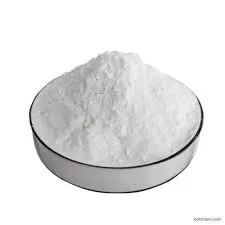- Afrikaans
- Albanian
- Amharic
- Arabic
- Armenian
- Azerbaijani
- Basque
- Belarusian
- Bengali
- Bosnian
- Bulgarian
- Catalan
- Cebuano
- Corsican
- Croatian
- Czech
- Danish
- Dutch
- English
- Esperanto
- Estonian
- Finnish
- French
- Frisian
- Galician
- Georgian
- German
- Greek
- Gujarati
- Haitian Creole
- hausa
- hawaiian
- Hebrew
- Hindi
- Miao
- Hungarian
- Icelandic
- igbo
- Indonesian
- irish
- Italian
- Japanese
- Javanese
- Kannada
- kazakh
- Khmer
- Rwandese
- Korean
- Kurdish
- Kyrgyz
- Lao
- Latin
- Latvian
- Lithuanian
- Luxembourgish
- Macedonian
- Malgashi
- Malay
- Malayalam
- Maltese
- Maori
- Marathi
- Mongolian
- Myanmar
- Nepali
- Norwegian
- Norwegian
- Occitan
- Pashto
- Persian
- Polish
- Portuguese
- Punjabi
- Romanian
- Russian
- Samoan
- Scottish Gaelic
- Serbian
- Sesotho
- Shona
- Sindhi
- Sinhala
- Slovak
- Slovenian
- Somali
- Spanish
- Sundanese
- Swahili
- Swedish
- Tagalog
- Tajik
- Tamil
- Tatar
- Telugu
- Thai
- Turkish
- Turkmen
- Ukrainian
- Urdu
- Uighur
- Uzbek
- Vietnamese
- Welsh
- Bantu
- Yiddish
- Yoruba
- Zulu
Nov . 18, 2024 09:17 Back to list
Dexamethasone Injection 4 mg/mL for Effective Anti-inflammatory Treatment
Dexamethasone A Comprehensive Overview of Its Uses and Importance
Dexamethasone is a corticosteroid medication that is widely used for its anti-inflammatory and immunosuppressive properties. One common formulation of this drug is Dexamethasone Sodium Phosphate, which comes in a concentration of 4 mg/ml. This medication plays a critical role in managing various medical conditions due to its potent effects. Understanding its applications, benefits, and potential side effects is essential for both healthcare professionals and patients.
Mechanism of Action
Dexamethasone works by mimicking the effects of hormones produced by the adrenal glands. It specifically binds to glucocorticoid receptors in various tissues, leading to alterations in gene expression. This action helps reduce inflammation and modulate the immune response. As a result, it is effective in treating conditions associated with excessive inflammatory responses, such as autoimmune diseases, allergic reactions, and certain types of cancer.
Medical Uses
The applications of dexamethasone are diverse. It is commonly prescribed for
1. Respiratory Conditions Dexamethasone is often used in acute exacerbations of asthma and chronic obstructive pulmonary disease (COPD). Its anti-inflammatory properties help alleviate airway swelling and improve breathing.
3. Allergic Reactions Severe allergic reactions, including anaphylaxis, can be managed with dexamethasone to reduce swelling and inflammation.
dexamethasone sp 4 mg ml

4. Cancer Treatment Dexamethasone is incorporated into treatment regimens for various cancers, particularly hematological malignancies. It helps manage side effects related to chemotherapy and serves as part of the treatment protocol.
5. COVID-19 During the COVID-19 pandemic, dexamethasone emerged as a crucial therapeutic agent for patients with severe respiratory symptoms, significantly reducing mortality rates.
Administration and Dosage
Dexamethasone can be administered through various routes, including oral tablets, injectable forms, and topical preparations. The dosage depends on the specific condition being treated, the severity of the illness, and the patient’s individual response to therapy. Medical professionals carefully determine the appropriate regimen to ensure efficacy while minimizing the risk of side effects.
Potential Side Effects
While dexamethasone is beneficial, it is not without risks. Common side effects include increased appetite, weight gain, insomnia, and mood changes. Prolonged use may lead to more serious complications, such as osteoporosis, adrenal suppression, and increased susceptibility to infections. Therefore, it is crucial for patients to be monitored regularly by healthcare providers.
Conclusion
Dexamethasone, particularly in its 4 mg/ml formulation, remains a cornerstone in the treatment of a wide array of conditions marked by inflammation and immune dysfunction. Its versatility and effectiveness make it a vital tool in modern medicine. However, healthcare providers must balance its benefits against potential side effects, ensuring tailored approaches to treatment for optimal patient outcomes. As research continues, the understanding of dexamethasone's full potential and its role in therapeutic regimens will likely evolve, further solidifying its place in clinical practice.
-
Guide to Oxytetracycline Injection
NewsMar.27,2025
-
Guide to Colistin Sulphate
NewsMar.27,2025
-
Gentamicin Sulfate: Uses, Price, And Key Information
NewsMar.27,2025
-
Enrofloxacin Injection: Uses, Price, And Supplier Information
NewsMar.27,2025
-
Dexamethasone Sodium Phosphate Injection: Uses, Price, And Key Information
NewsMar.27,2025
-
Albendazole Tablet: Uses, Dosage, Cost, And Key Information
NewsMar.27,2025













